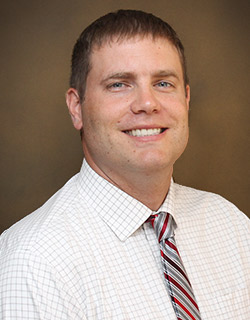Back To School - Media Tip Sheet
August 9, 2018
With “Back to School” mode in full swing, GBMC doctors want to remind parents that now is the time to make sure that their children start the new school year in good health. Below are back-to-school health tips from GBMC physicians that will aid parents with their kids’ back-to-school transition. To cover the topic, set up interviews, or get further details, call John M. Lazarou at 443-849-2126 or email jlazarou@gbmc.org.
--EASING THOSE BACK TO SCHOOL JITTERS
-- WHAT’S FOR LUNCH AT SCHOOL?
--IS IT TIME FOR YOUR CHILD’S CHECK-UP? YES!
--SPORTS INJURIES AND CONCUSSIONS IN CHILDREN
--HOW TO TREAT LICE & SUPER LICE
--THE TIME IS NOW FOR THE BACK-TO-SCHOOL SLEEP ROUTINE
--SCHOOL BELL RINGING, CAN YOU HEAR IT?
--HOW TO AVOID THE PAIN FROM A HEAVY BACKPACK
--DO THE EYES HAVE IT? MAKE SURE YOUR KIDS DO!
EASING THOSE BACK TO SCHOOL JITTERS
As we approach the first day of school many kids may become anxious about being in new school and new surroundings, meeting new teachers and new friends in class. For these and other reasons, kids may not seem excited about going back to school. Every child responds to going back to school differently and GBMC pediatricians can offer some tips on how parents can address jitters and make the transition time smoother which can help their kids go from the long lazy days of summer to being back to the demands of being back in a classroom.
WHAT’S FOR LUNCH AT SCHOOL?
Back to school also means back to making decisions for your child’s lunch. Packing the same lunch daily can be boring for both the parent and the child and the quality and quantity of food choices at school at times can be a little disappointing. When choosing what to eat for lunch, making a healthy choice is important. A GBMC dietitian can offer tips for parents on how to change it up when it comes to packing their kids lunch, how to ensure that their child is making proper choices at their school cafeteria and explain why it’s important for students to eat lunch.
IS IT TIME FOR YOUR CHILD’S CHECK-UP? YES!
Along with buying new school supplies and clothes, now is the time for parents to schedule an appointment for their child’s back-to-school physical. Nearly all schools require that children between the ages of four and 17 undergo annual physicals or “well-checks” that include immunizations to ensure normal development, healthy growth and protection from preventable disease. The American Academy of Pediatrics recommends every child get a physical exam once a year. A GBMC primary care physician can discuss why a parent’s priority should be their child’s annual physical, what the back-to-school exam should include, how it can also help identify any social or emotional problems a child might have, and why it’s a good time to for parents to discuss with the physician any concerns they might have such as food and nutrition, illnesses and vaccinations.
SPORTS INJURIES AND CONCUSSIONS IN CHILDREN

With an estimated 25 million scholastics, and an additional 20 million in organized community-based youth athletic programs in the United States, the opportunity for a sports injury is very high along with the start of the fall recreation and school athletic season soon underway, it’s important for parent and coaches alike to know what to look for and what to do when it comes to sports related injuries and concussions. Sports injuries are the second leading cause of emergency room visits for children and adolescents, and the second leading cause of injuries in school. James Baronas, MD, primary care physician with GBMC whose medical specialty is orthopaedics and sports medicine, can discuss sports safety and signs parents and coaches should recognize when it comes to sports injuries and concussion and can answers questions such as: What are some of the symptoms and complications from injuries in sports?;How important is hydration when it comes to avoiding sports related injuries among kids?; Is recognizing concussion in younger children more complicated than teenagers or adolescents?; Are children who sustain one concussion at a higher risk for a second concussion from an injury sustained soon after the first one?
HOW TO TREAT LICE & SUPER LICE
Just the mere mention of the word, “lice,” makes may parents want to itch and increase their concern about "super lice," the strain of head lice immune to common over-the-counter treatments. In 2016, a report in The Journal of Medical Entomology showed that super lice cases to have been found in 48 states, and that they have been resistant to most over the counter treatments due to several mutations in the lice. The medical community wants to remind parents that head lice are a nuisance, don't carry disease and therefore they are not considered a personal or public health threat. A GBMC pediatrician can provide information on ways parents can cope, clear up some misconceptions about lice and offer tips on how to keep lice and super lice away or what to do if their child has them.
THE TIME IS NOW FOR THE BACK-TO-SCHOOL SLEEP ROUTINE
With summer vacation, jammed with late nights and family trips, winding down soon, GBMC pediatricians want to remind parents that now is the best time to re-establish bedtime routines. Studies show that students who get enough sleep tend to have the best chance at excelling in the classroom, performing at their highest academic level and helping them become more engaged in after-school activities. A GBMC pediatrician can offer parents guidelines on how to create a gradual process that will help their kids settle into their back-to-school sleep schedule, how to determine if their child is getting enough sleep and ways to handle the other major cause of lack of sleep – screen time.
SCHOOL BELL RINGING, CAN YOU HEAR IT?
Over one million children in the U.S. have hearing problems, with ear infections being the most common cause of hearing loss in kids. For this reason and since hearing plays a major role in a child’s learning as well as speech and language development, physicians within GBMC’s Department of Otolaryngology are urging parents to make sure that their child has his or her hearing checked before the start of the new school year. A GBMC ear, nose and throat specialist or audiologist can discuss the common signs of hearing loss in children and what parents of kids with hearing loss can do to ensure that their child has a successful academic year.
HOW TO AVOID THE PAIN FROM A HEAVY BACKPACK
Children, for many reasons, might be feeling the “weight of the world” on their shoulders with the start of the new school year, but parents can make sure that their kids’ backpacks are as light as possible. The American Academy of Orthopedic Surgeons advises parents that their kids shouldn't carry a backpack that is more than 15 percent of their body weight and that if not worn properly, backpacks could lead to posture problems along with injured joints and muscles as well as severe neck, shoulder and back pain. A GBMC orthopedic surgeon can offer ways for parents to make sure that their kids wear their backpacks correctly and reduce the risk of injury, what kind of backpacks to consider for their child, how to help their kids cut down on the items in their packs, proper ways to insert items into backpacks and what to do if their child feels pain resulting from the extra weight of his or her pack.
DO THE EYES HAVE IT? MAKE SURE YOUR KIDS DO!
According to The American Academy of Ophthalmology, healthy vision plays an important role in the academic success of students of all ages. GBMC ophthalmologists stress that children who are having a hard time seeing the classroom’s blackboard or the ball in gym class may become frustrated, which could hinder their learning. Physicians within GBMC’s Department of Ophthalmology can offer parents tips and simple precautions on how to make sure that their kids have healthy eyes and vision throughout the school year. August is also Children's Eye Health and Safety Month.